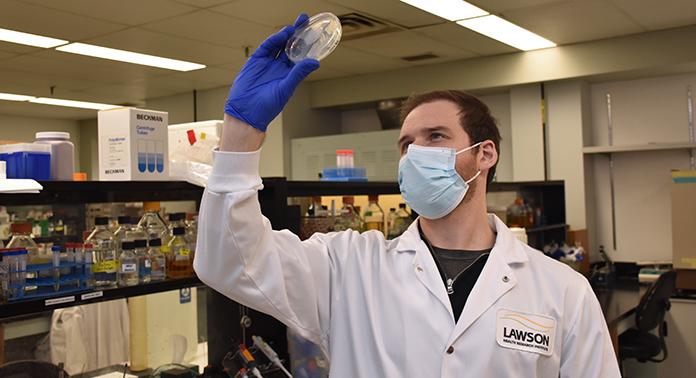A small study from Lawson Health Research Institute and Western University in London, Ont., is adding to growing research suggesting the impact of gut bacteria on health.

Researchers in London focused on the drug abiraterone acetate in patients with prostate cancer. The drug, taken orally, is known as an effective therapy for those who haven’t had success with other treatments.
Prostate cancer treatments traditionally focus on depriving the body of androgens, hormones responsible for prostate cancer growth. Abiraterone acetate also reduces androgens in the body, but through a different mechanism.
Because it’s taken orally, it goes through the intestinal tract, coming into contact with “billions of microorganisms,” said scientist and associate professor Jeremy Burton, the lead researcher on the study.
“While it’s long been a mystery why abiraterone acetate is so effective, our team wondered if the gut microbiome plays a role.”
According to the study’s findings, patients’ gut microbiomes changed drastically after taking abiraterone acetate in a way that both reduced harmful organisms and increased beneficial ones.
The drug is metabolized by bacteria in the gut, leading to an increase in a bacterium (Akkermansia muciniphila) that’s previously been shown to help improve the response to cancer immunotherapy drugs, and also resulting in increased production of vitamin K2, which researchers say has anti-cancer properties that can inhibit tumour growth.
“Research is beginning to uncover the ways in which the human microbiome influences cancer development, progression and treatment,” said PhD candidate Brendan Daisley.
“Our study highlights a key interaction between a cancer drug and the gut microbiome that results in beneficial organisms with anti-cancer properties.”
In addition to Lawson and Western University, the study also involved help from both of London’s hospital networks.
The study involved 68 prostate cancer patients at London Health Sciences Centre, including those treated with traditional androgen-depletion therapies and those taking the oral drug. The team also analyzed stool samples collected from the patients and conducted further experiments in their laboratory at St. Joseph’s Health Care London.
Researchers hope further exploration of the interactions between drugs and gut microbiomes can one day lead to improved treatment outcomes for a variety of diseases.
“While more research is needed, we may one day be able to analyze a patient’s microbiome to determine the best course of treatment or even influence the microbiome to improve outcomes,” says Burton.
“This could lead to a new frontier in personalized medicine.”









Comments